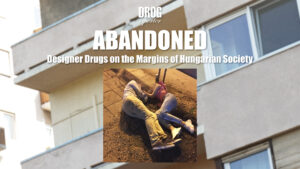Nine lethal heroin overdoses in one week – HCLU refutes accusations that the “liberal” drug policy of the government is responsible
The rate of people dying from drug overdose in Hungary (2,5 persons per 1 million inhabitants) is considered relatively low in Europe, especially if we compare it with similar rates in countries like the UK (32,8 per 1 million) or Estonia (50,6 per 1 million). According to professionals, there are 1 or 2 lethal heroin overdoses every months. Notwithstanding, it shocked the public that the police reported 9 lethal heroin overdose cases within a single week in mid August, most of them happened at the same weekend. The tragedies occupied the headlines in the media for several days. Many speculations appeared in the news about the possible reasons, for instance that more potent heroin arrived to the country through Vietnamese dealers, or the drug might be polluted, or the addicts mixed them with alcohol and other drugs. The criminal investigation is not closed yet, but some preliminary results are already known to the public. We know that the substance found at the overdosed persons was not poisoned, even if it was polluted with paracetamol and coffein, the usual black market cut-off agents in Hungary. The potency of the heroin was higher (appr. 43%) than the average heroin potency in the black market (25-35%). The autopsy showed that some people mixed the heroin with alcohol, in one case a user combined heroin with different stimulants and depressants too. However, in other cases the investigation did not find any evidence for polidrug use. The overdose was a long agony for most drug users, they were dying from suffocation (vomitting). All persons were older (over 30 years old) experienced users (at least 10 years of addiction carrier, with unsuccesful attempts to quit).
Some politicians tried to use the overdose deaths in the silly season to create political capital for their own purposes. For example András Pettkó, the MP of an opposition conservative party (MDF) blamed the “liberal” drug policy of the government for the problems. In fact, the drug policy of our current government cannot be called liberal at all, in European comparison we still have a restrictive legislation, even if offenders who possessed small amounts of drugs for personal use are referred to a 6 months alternative treatment instead of incarceration. More than 90% of all drug offenders are arrested for simple possession, more than 90% of those referred to alternative treatment are occasional marijuana users: you decide if its liberal or not. The Ministry of Social Affairs and Labour, the governmental department in charge of drug coordination issued a statement in which they point out that a comprehensive approach is needed to prevent drug overdoses, especially increasing access to harm reduction measures like substitution treatment. HCLU also made a statement on the overdose cases (quoted by many journalists), refuting the arguments of some politicans and journalists who claim that a US-stlye war on drugs could prevent the tragedies. We made a proposal to reduce drug related overdoses with 6 measures: 1) Supervised injections sites (a controlled environment for drug users can reduce the risks of overdose deaths); 2) Special OD prevention trainings (recently clients are not educated about safe injection tactics and OD prevention); 3) Distribution of OD prevention kits (including Naloxon ampules); 4) Greater access to substitution medications (methadone, buprenorphine, suboxone); 5) The introduction of heroin prescription for treatment-resistant heroin users (following Switzerland, the Netherlands, Spain, Germany and Canada); 6) Breaking down barriers to access medical help (less stigmatizing and criminalizing environtment). These proposals were also discussed at the extraordinary meeting of the governmental Drug Coordination Commission (KKB) on 12 August, which will come out with recommendations soon. The Parlimentary Committee on Drug Affairs will also held a special meeting on the overdose deaths in the near future.
There is still no consensus on the causes of heroin overdoses in the scientific community. In many cases heroin users overdose after a longer period of abstinence in prison or institutional care, or after a change in the black market potency or quality of the drug. As Darke and Zador emphasizes, the simple “heroin posioning” (high morphine levels in the blood leading to poisoning) do not explain a significant proportion of overdose cases, where addicts did not use significantly larger doses of heroin than before. Poisoning from adulterants can explain some overdose deaths, but not most of them. In the majority of cases polidrug use seems to be the main reason of death: the combination of heroin with alcohol or tranquillizers can be a lethal coctail. However, there are still many overdoses where these factors fail to provide a clear explanation for the sudden death of heroin users. Some researchs, like Siegel, emphasize that drug tolerance is conditioned by the environment in which consumption is happening. Therefore a sudden change in the environment can result in reduced tolerance-response from the body of the user. Indeed, some surveys seem to confirm this hypothesis, even a case study from Hungary, published in the Harm Reduction Journal. We cannot be certain if the recent overdoses in Hungary were caused by the potency changes in the black market, or changes in the set and setting of drug use. What we know for sure is that creating a controlled, safer environment for heroin use, providing greater access to services, special education and prevention kits to users can save lives.
Posted by Peter Sarosi





